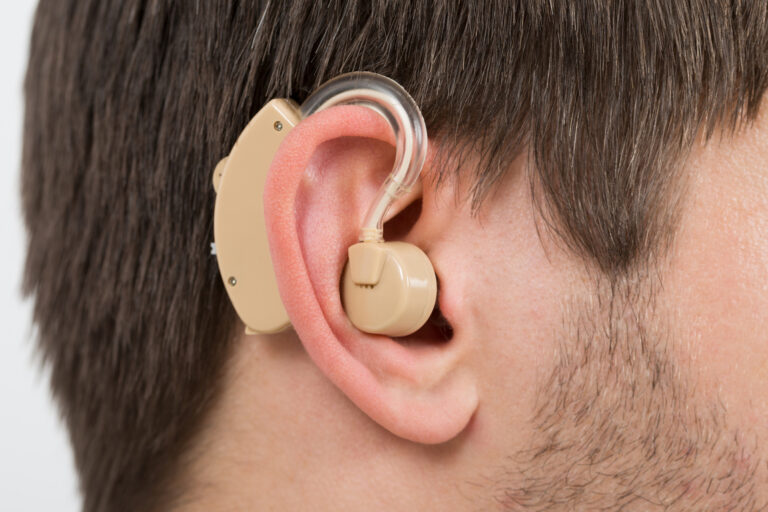If you’re confused between selecting technology to help with your hearing loss, you’ve probably come across hearing aids and cochlear implants.
Both hearing aids and cochlear implants help those with hearing loss communicate better and while hearing aids don’t require surgery and are suited for people with less severe hearing loss and fair speech understanding, cochlear implants will require surgery and are much more suited for those with more severe hearing loss and poor speech understanding.
Hearing Aids
Radio analogy: With hearing aids, if your radio is damaged, all you need is to fine-tune your radio station and turn up the volume.
Extent and type of hearing loss: Best for hearing loss that is mild to profound. If you’re suited to hearing aids, your type of hearing loss is either ‘conductive’, meaning it stems from the outer or middle ear, or ‘sensorineural’, which means it stems from the inner ear or hearing nerve.
Speech understanding: If your speech understanding is excellent to fair/poor, this means you are able to understand approximately 50% or more of words spoken during testing.
What the device does: Hearing aids will amplify acoustic sounds generally and/or by very specific frequencies.
Timing: Usually, it takes about two weeks or less for you to adapt to your hearing aids.
Cochlear Implants
Radio analogy: With cochlear implants, if your radio receiver is damaged and sounds like static, you shouldn’t turn up the volume as this will only make the static louder. You will need a new radio.
Extent and type of hearing loss: Best of hearing loss that is moderate to profound. The type of hearing loss you have is called ‘sensorineural’, meaning it stems from the inner ear or hearing nerve.
Speech understanding: If your speech understanding is fair to poor, you are able to understand about 50% or less of words spoken during testing.
What the device does: A cochlear implant device will allow you to hear in a different way that is called electrical stimulation. The surgically placed implant bypasses your inner ear, translating acoustic sound into electrical signals and then sending the signals directly to the hearing nerve and then on to your brain.
Timing: Usually, it takes around 6 to 12+ months for you to adapt to your cochlear implant.


